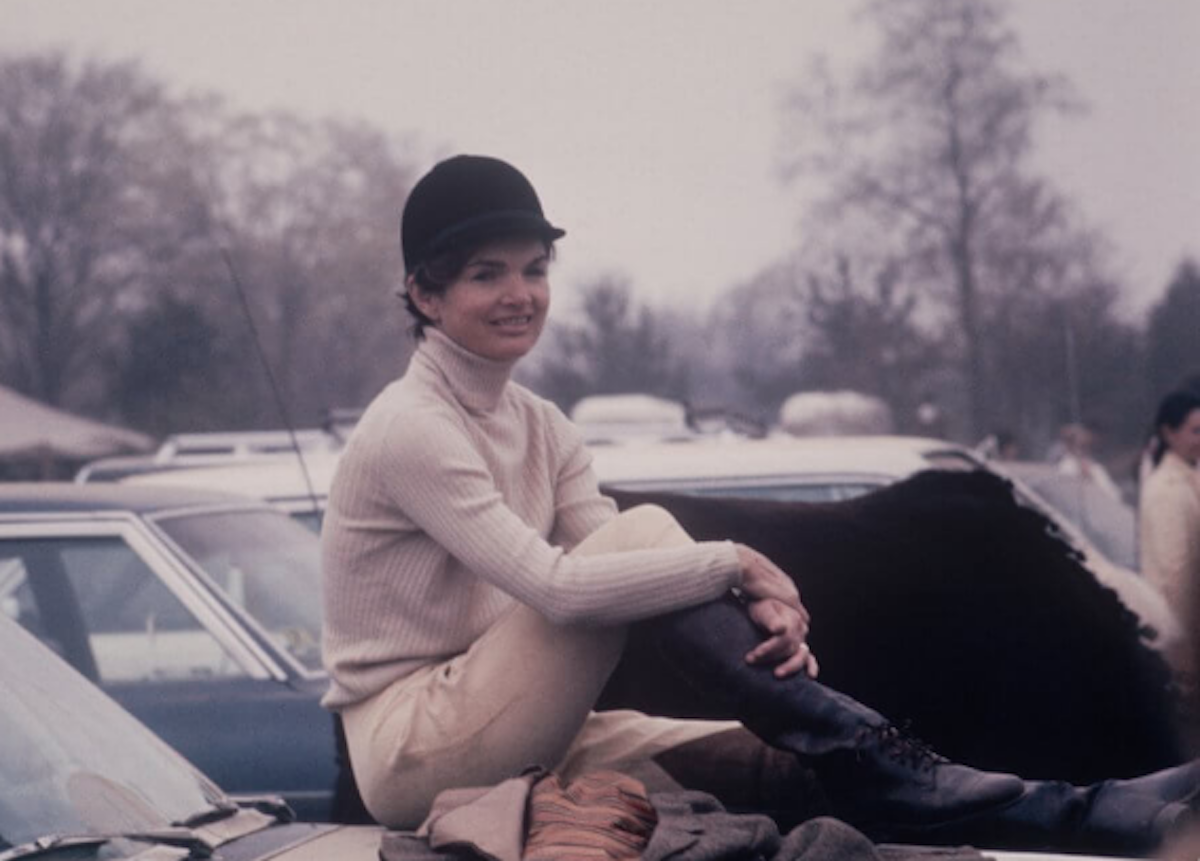Jackie Kennedy's Battle With Non-Hodgkin Lymphoma
- Former first lady Jacqueline Lee “Jackie” Kennedy Onassis, passed away on May 19, 1994, after non-Hodgkin lymphoma spread to her spinal cord, brain, and liver.
- Since the fashion icon’s death 29 years ago, much has changed regarding what is known about the cause, prevention, and treatment developments of non-Hodgkin lymphoma.
- All non-Hodgkin lymphomas start in white blood cells called lymphocytes, which are part of your body's immune system.
- From there, doctors separate these cancers into types based on the specific kind of lymphocytes they grow from: B cells or T cells.
- Knowing whether you have a B-cell or a T-cell lymphoma is important because it will determine what kind of treatment you get.
The stylish New York-born socialite was married to John F. Kennedy, the 35th president of the United States, and is remembered as a “symbol of strength for a traumatized nation” after her husband’s assassination in 1953.


At first, Kennedy’s doctors diagnosed the swollen lymph node as an infection. However, two months later, in January 1994, she began developing more symptoms representative of a more serious illness.
In addition to the swollen lymph node in her groin, the equestrienne from East Hampton, New York, also developed a swollen lymph node in her neck and an extremely severe stomach ache.
Following further examination, Kennedy was diagnosed with non-Hodgkin lymphoma (a type of blood cancer).
Kennedy immediately started chemotherapy treatment and told the public her prognosis was promising.
What Kind of Lymphoma Do You Have? Why Your Type Matters
However, by March the disease had spread to her spinal cord, brain, and liver and Kennedy was declared terminal. She passed away on May 19, 1994.
What is Non-Hodgkin Lymphoma?
When doctors diagnose people with non-Hodgkin lymphoma, they're not talking about a single cancer, but many. “Non-Hodgkin lymphoma is a big category,” Dr. Julie Vose, chief of hematology/oncology at the University of Nebraska Medical Center, previously told SurvivorNet.
All non-Hodgkin lymphomas start in white blood cells called lymphocytes, which are part of your body's immune system.
From there, doctors separate these cancers into types based on the specific kind of lymphocytes they grow from: B cells or T cells. Knowing whether you have a B-cell or a T-cell lymphoma is important because it will determine what kind of treatment you get.
Do You Know Your B Cells From Your T Cells?
We don’t know what type of non-Hodgkin lymphoma Jackie Kennedy had. But once your doctor has identified which type of non-Hodgkin lymphoma you have, you'll discuss treatments.
Which therapy your doctor recommends will depend on your cancer type, where it is in your body, and how aggressive it is.
Make sure you understand why your doctor has suggested a particular treatment and how it might help you before moving forward. Thankfully, since Jackie Kennedy’s passing, there is now better knowledge of the disease and treatment.
So, anyone diagnosed with this form of cancer can rest assured there are ways to overcome the disease.
Advancements In Non-Hodgkin Lymphoma Treatments & Research
Since Jackie Kennedy’s passing, there have been a variety of different advancements in the research and treatment of non-Hodgkin Lymphoma.
In terms of genetics, according to the American Cancer Society (ACS), a lot of progress has been made by scientists “in understanding how changes in the DNA inside normal lymphocytes can cause them to develop into lymphoma cells.” The ACS explains that once there is a full understanding of DNA changes in lymphoma cells, drugs can be created to block these processes.
As of now, improved and highly sensitive tests for detecting non-Hodgkin lymphoma have been created through progress.
“Some of these tests are already in use, and others are being developed,” the ACS says, noting these tests may be used for:
- Detecting lymphoma cells via biopsies
- Determining types of lymphoma
- Assist in determining the likelihood of whether a lymphoma will grow or spread
- Deciphering what treatment to use
- Help figure out if a relapse is possible
Meanwhile, as for treatment, there have been advancements in chemotherapy, stem cell transplants, targeted therapies, and immunotherapy.
Thanks to new chemotherapy drugs being studied in clinical trials, drugs like bendamustine (Treanda) and pralatrexate (Folotyn) have been approved for use against some types of disease. And other studies are looking at different ways to combine drugs.
Non-Hodgkin Lymphoma Treatment: Finding the Right Fit for You
Stem cell transplant methods have also since been improved.
For example, because autologous transplants (transplants that use a patient’s own stem cells) pose the risk of putting lymphoma back into the patient after treatment, new ways of separating out the “last traces of lymphoma cells from the stem cells before they are returned to the patient” are being researched.
New monoclonal antibodies have also been created to treat the disease and may help remove the “last traces” of lymphoma cells.
“Researchers are also studying the effectiveness of non-myeloablative (reduced-intensity) stem cell transplants in people with lymphoma,” the ACS explains.
“This approach may allow more people to benefit from stem cell transplants, especially those who are older or in poor health.”
Dr. Caitlin Costello Explains When Stem Cell Transplants Are Considered
As targeted therapies continue to be studied, some drugs like “ibrutinib (Imbruvica), acalabrutinib (Calquence), and idelalisib (Zydelig)” are now being used to treat non-Hodgkin lymphoma.
Drugs that have shown promising results in early studies include: Phosphatidyl-inositide 3 kinase (PI3K) inhibitors, BCL-2 inhibitors, Janus kinase (JAK) inhibitors, and Tyrosine kinase inhibitors, the ACD says.
Non-Hodgkin Lymphoma Treatment and Beyond
Lastly, improvements in immunotherapy have also taken place, like monoclonal antibodies being made to target proteins in the lymphoma cells and destroy the cells with minimal damage to regular body tissues.
For example, Rituximab (Rituxan) was the very first immunotherapy drug approved to treat some forms of non-Hodgkin lymphoma.
“Rituximab is the immunotherapy that has been approved the longest and we have the most experience with for lymphoma,” Dr. Elise Chong, medical oncologist at Penn Medicine, previously told SurvivorNet.
RELATED: CAR T-Cell Therapy for Non-Hodgkin Lymphoma
Additionally, a new kind of cancer therapy available called antibody-drug conjugates has been dubbed as “incredibly promising.”
Studies are underway on Brentuximab vedotin (Adcetris) to be used against different types of lymphoma. And clinical trials are testing to see if Moxetumomab pasudotox can treat hairy cell leukemia (HCL).
Some “newer drugs, such as pembrolizumab (Keytruda) and nivolumab (Opdivo), work by blocking these checkpoints [checkpoint inhibitors], which can boost the immune response against cancer cells,” the ACS adds.
For patients who have not responded to treatments for the most common type of non-Hodgkin lymphoma, diffuse large B-cell lymphoma, a remarkable treatment option called CAR T-cell therapy became available after The U.S. Food and Drug Administration approved it in May 2018.
Non-Hodgkin Lymphoma: Overview
Lastly, a vaccine to treat non-Hodgkin lymphoma has been doing well in trials.
Dr. Elise Chong, of Penn Medicine, Explains Immunotherapy
Contributing: SurvivorNet Staff
Learn more about SurvivorNet's rigorous medical review process.

